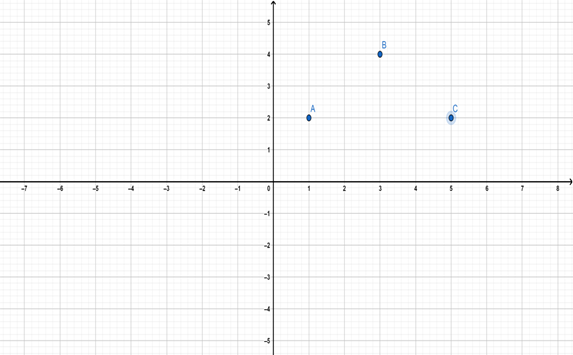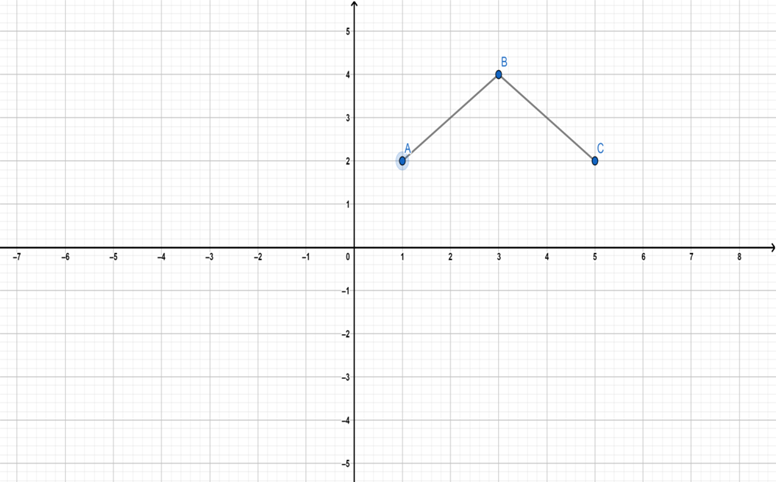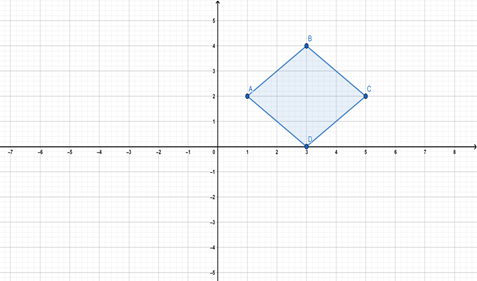Locate the points A(1,2), B(3,4) and C(5,2) on a graph sheet taking suitable axes. Write the coordinates of the fourth point D to complete the rhombus ABCD. Measure the diagonals of this rhombus and find whether they are equal or not.
The points on the graph are
A = (1, 2)
B = (3, 4)
C = (5, 2)

The incomplete rhombus on the graph will look like

The completed rhombus ABCD on the graph is

∴ The coordinates of point D to complete the rhombus ABCD are D (3, 0).
The diagonal AC has the y-coordinate constant, i.e. 2.
∴ The length of AC = difference in x-coordinates = 5 – 1 = 4 units
The diagonal BD has the x-coordinate constant, i.e. 3.
∴ The length of BD = difference in y-coordinates = 4 – 0 = 4 units
∴ The two diagonals of rhombus ABCD are equal in length.